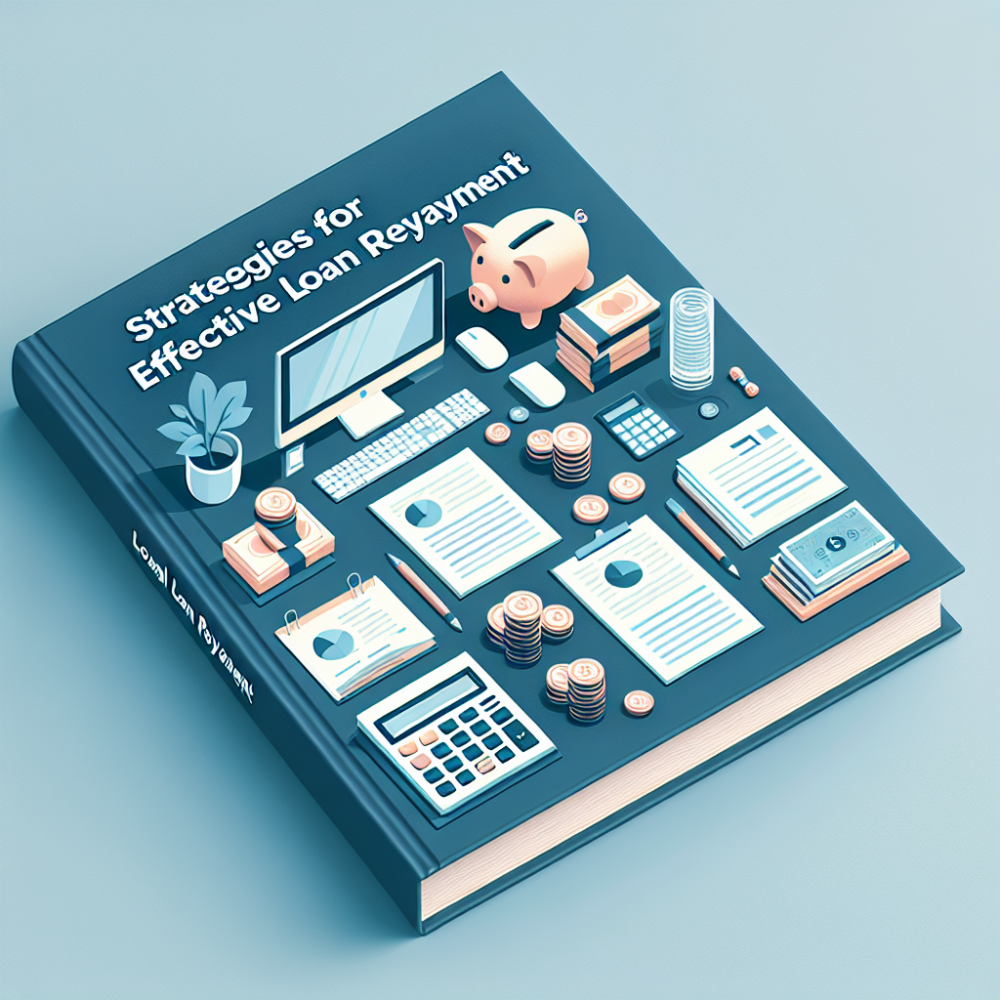Strategies for Effective Loan Repayment

Posted on: Monday, March 4th, 2024
Navigating the complexities of loan repayment can significantly impact your financial health and personal well-being. With the ever-evolving financial landscape, understanding the most effective strategies for managing your debts is crucial. This guide provides a comprehensive overview of ten actionable tips to efficiently manage and repay your loans. Embracing these strategies can lead to more manageable debt levels, improved credit scores, and ultimately, financial freedom.
The foundation of effective debt management is creating a realistic budget that prioritizes loan repayments. This involves tracking your income and expenses to identify areas where you can reduce spending. Redirecting these savings towards your loans can expedite repayment periods and reduce the amount of interest paid over time. Tools and apps are readily available to streamline this process, making budgeting more accessible than ever.
Another critical strategy is to use the debt avalanche or snowball methods. The avalanche method targets debts with the highest interest rates first, while the snowball method focuses on paying off the smallest debts first. Both approaches have their merits, and selecting the one that best fits your psychological needs can make the repayment journey more manageable and motivating. Understanding the nuances of each method is key to maximizing their benefits.
Consider refinancing or consolidating your loans if you're eligible. Refinancing can lower your interest rates and monthly payments, making it easier to manage your debts. Debt consolidation combines multiple debts into a single loan with a lower interest rate, simplifying your payments. However, it's important to carefully assess the terms and potential costs involved to ensure these options actually provide financial relief.
Making more than the minimum payment on your loans whenever possible can significantly reduce the interest accrued and shorten the repayment period. Even small additional payments can have a substantial impact over time. Setting up automatic payments can also prevent missed payments and may qualify you for interest rate reductions from some lenders. This proactive approach showcases your commitment to debt repayment.
Communicate proactively with your lenders, especially if you're facing financial difficulties. Many lenders offer forbearance, deferment, or modification programs that can temporarily lower your payments or interest rates. Being upfront about your financial situation can lead to arrangements that prevent defaults and protect your credit score. Remember, lenders typically prefer to work with you rather than pursue costly collection actions.
Utilize any windfalls or extra income, such as tax refunds, bonuses, or raises, to make lump-sum payments on your loans. This strategy can drastically reduce your principal balance and the interest paid over the loan's lifetime. Allocating unexpected funds to debt repayment can accelerate your journey to financial freedom.
Explore government or employer assistance programs that may offer loan forgiveness, repayment assistance, or matching contributions. Programs like Public Service Loan Forgiveness (PSLF) can eliminate remaining debt after a set number of qualifying payments for those in public service jobs. Additionally, some employers provide loan repayment assistance as part of their benefits package, which can significantly reduce your debt burden.
Stay informed about changes in legislation or policy that may affect student loan repayment, interest rates, or forgiveness programs. Government initiatives, like temporary suspension of payments or interest due to nationwide emergencies, can offer critical relief. Regularly review official resources and consider consulting with a financial advisor to leverage any new opportunities that may arise.
Consider alternative payment plans that align with your financial capacity, such as income-driven repayment plans for federal loans. These plans adjust your monthly payments based on your income and family size, potentially lowering them to a more manageable level. Recertification is required annually, so mark your calendar to avoid any disruptions in your payment adjustments.
Finally, prioritize your mental and emotional well-being throughout the loan repayment process. The stress of debt can be overwhelming, but utilizing resources, seeking professional advice, and employing effective repayment strategies can lighten the load. Celebrate your milestones, no matter how small, to maintain motivation and perspective on your path to a debt-free life.
In summary, managing and repaying loans require a comprehensive approach that includes budgeting, strategic payment methods, communication with lenders, and utilizing available resources. By employing these top ten strategies, individuals can navigate their loan repayment journey more effectively, leading to financial stability and peace of mind.